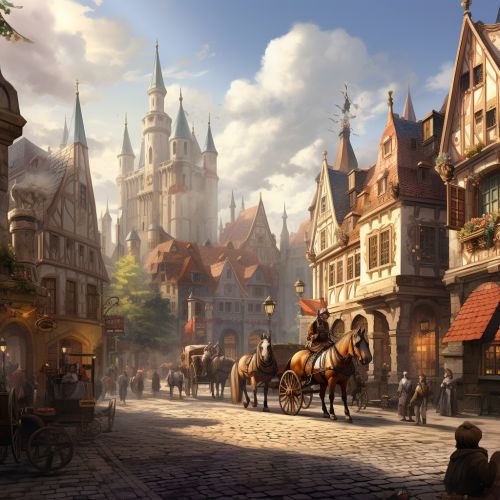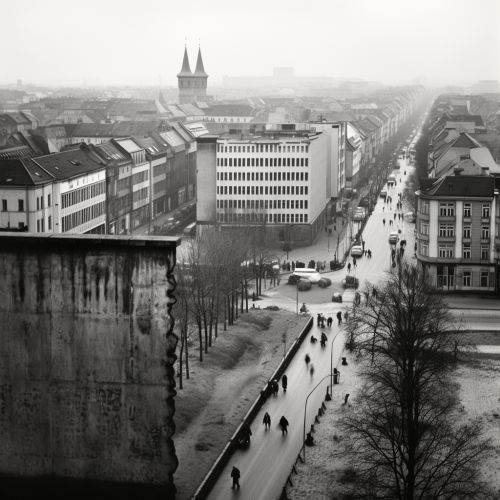History of Germany
Prehistoric and Ancient Germany
Germany's history begins with the arrival of the first human beings around 300,000 years ago. The first non-modern human fossil, the Neanderthal, was discovered in the Neander Valley. Later, the Germanic tribes arrived during the Bronze Age from the Nordic region.


Roman Era
During the Roman Era, the Germanic tribes had a series of conflicts with the Roman Empire. The Battle of the Teutoburg Forest in 9 AD was a significant event where the Germanic tribes ambushed and destroyed three Roman legions.
Migration Period and Christianity
The Migration Period, also known as the Barbarian Invasions, was a period of intensified human migration in Europe from about 400 to 800 AD. During this period, the Frankish Kingdom was established and Christianity began to spread in Germany.
Holy Roman Empire
The Holy Roman Empire, a multi-ethnic complex of territories in Western and Central Europe, was established in 800 AD. It was a significant period in the history of Germany, marking the beginning of a centralized rule.
Reformation and the Thirty Years' War
The 16th century was marked by the Protestant Reformation, initiated by Martin Luther in 1517. The Thirty Years' War (1618–1648) devastated the population of Germany, causing a decline of about 30%.
Age of Enlightenment
The Age of Enlightenment in the 18th century had a significant impact on Germany. It was a period of intellectual and philosophical developments, with figures like Immanuel Kant and Johann Wolfgang von Goethe contributing to literature, philosophy, and science.


German Confederation and Empire
The German Confederation was established in 1815 as a loose association of 39 German states. The Prussian dominance was solidified with the unification of Germany under the Prussian King Wilhelm I, declared German Emperor in 1871.
World War I and Weimar Republic
Germany was one of the Central Powers in World War I (1914–1918). The war ended with the abdication of Emperor Wilhelm II, and the Weimar Republic was established. The Treaty of Versailles in 1919 led to territorial losses and severe reparations that had a devastating impact on the German economy.
Nazi Germany and World War II
The Nazi Party, led by Adolf Hitler, came to power in 1933. Hitler's aggressive foreign policy and expansionist ideology are often considered to be the causes of the start of World War II. The Holocaust, under Hitler's regime, led to the genocide of six million Jews.
Post-War Era and Division
After World War II, Germany was divided into four zones of occupation. The Federal Republic of Germany (West Germany) and the German Democratic Republic (East Germany) were established in 1949. The Berlin Wall, built in 1961, became a symbol of the division.


Reunification and Modern Germany
The fall of the Berlin Wall in 1989 led to the reunification of East and West Germany in 1990. Today, Germany is a federal parliamentary republic, a leading industrial power, and a key member of the world's economic, political, and defense organizations.
